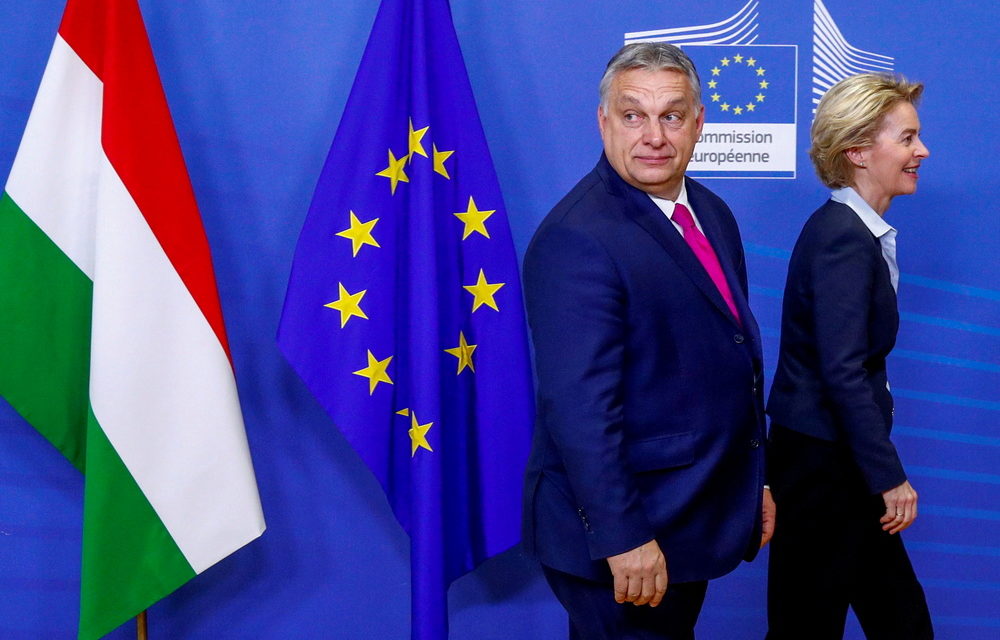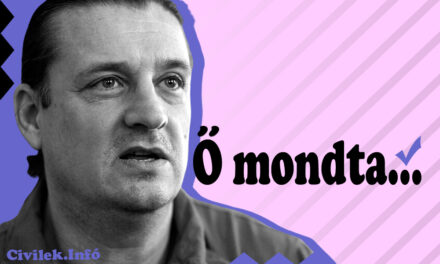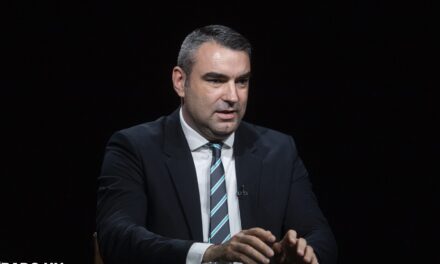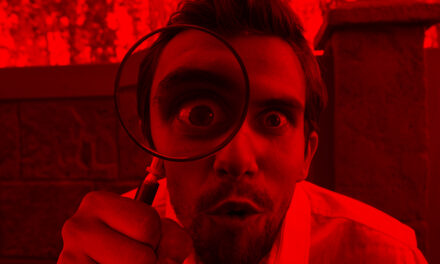Austrian journalist and teacher Elmar Forster wrote a book entitled "Hungary's freedom and love: a defense speech for a slandered nation and its fight for justice". Interview!
Self-proclaimed "Auslands-Österreich" (Austrian abroad), Elmar Forster, teacher, freelance journalist, graduated from Bregenz, went to college in Innsbruck and then Berlin, took part in countless international projects, and fell in love with Hungary during his travels. He has been teaching at Lajos Kossuth High School in Mosonmagyaróvár since 2018, and now lives in Dunaszentpál. In 2015, during the refugee crisis, he decided that he could no longer be silent and take the protection of the country where he settled. His book "Hungary's freedom and love: a defense speech for a slandered nation and its fight for justice" was recently published. Elmar Forster was interviewed by a Kossuth radio employee.
– Germany plans to build a fence on the eastern border, but we still remember how Germany reacted to Hungary's decision in 2015. What do you think now?
– I already said in 2015 that Viktor Orbán would be right with his refugee policy. It quickly became clear to me that the West was waging a smear campaign against him. The Hungarian Prime Minister was right in all his theories, and even though they are paying a heavy price for it, they still don't want to see their mistake.
- When did you learn about Petőfi's life?
– I already knew Petőfi superficially during my time in Austria, but I really started to study his works in detail in Hungary. Four years ago, my wife and I visited Koltó, and it was particularly moving for me when I read the poem "At the end of September". I also learned the poem by heart, and what is impressive to me is that in a Hungarian class, every Hungarian child can quote from the poem, which cannot be said about the poems of Austrian national poets here.
– Do you think the people of Western Europe understand what Petőfi means when he writes about freedom?
– I think the Western mentality is quite different. I felt this myself when I came to Hungary. I was also a left-wing student, although I come from a very religious Catholic family. It took me a long time to understand how Hungarians actually think. I think the biggest difference lies in the fact that freedom is not the most important value for people living in the West. This also explains why Hungary and Poland are much more resilient and will get through this crisis much more easily. While I think the West will fall.
- The title of his book is "Hungary's freedom and love: a defense speech for a slandered nation and its fight for justice". Why did you choose to write a valedictory speech for our nation?
- I have been living in Hungary since 1992, I taught in a Hungarian high school before, and now I teach in a Hungarian high school again, but since 1992 I have been in Prague and Slovakia, got to know the former Eastern Europe, and met my wife here. I saw the constant defamation of the country, and every time I came home to Austria I felt it firsthand. In 2015, the point came when I felt ashamed on behalf of Austria. At that time, the former socialist federal chancellor Faymann - who, by the way, only made it to high school and then became a taxi driver - gave an interview to Spiegel, in which he compared Orbán's refugee policy to the Holocaust. This outraged me so much that I submitted my protest to the Hungarian ambassador in Vienna. That's when I started blogging. Of course, 2006 was also a very shocking experience: Gyurcsány's lie and the fact that he stayed in politics.
I was teaching in Prague at the time, and my wife was here. I naively thought that the European Union would do something, but then it became clear to me that something completely different is happening here, and that a serious smear campaign is underway against Hungary. That's when I started looking into what actually lies behind things.
– In several chapters, he explores the reasons behind the attacks, and looks ahead to the direction in which Europe is developing. Do you also find answers to where this big gap between the countries of the Eastern bloc and the Western bloc comes from? Did it arise from cultural differences, from a difference arising from our history, or because of the economic situation, power relations?
– If we want to answer briefly, we can say that the former Eastern countries did not experience the postmodern period. It is a sociological movement in the spirit of "everything is free" and this attitude was not experienced in the eastern part. This is one of the reasons, but I think that this gap has its roots much deeper in history, which founded some kind of "oriental racism". It goes all the way back to the Middle Ages, this fear of "dogs".
If, for example, we look at the cartoons published in 2015, we see that Viktor Orbán is depicted as a dog, compared to dogs, that is, we see that this is an absolute "Eastern-racist" attitude on the part of the Western elite, and they don't even notice it. It was the eastern part of Europe that was the latest to join Christian Europe, and to all of this there is also some kind of feeling of superiority, which is fueled by economic superiority, but I personally think that this former power will collapse very soon.
- I think there is a rather big contradiction here, since it is very fashionable in Western Europe today to emphasize tolerance and equality, and yet Eastern European countries are not treated as equal. Although the countless experiences of Eastern European peoples should be evaluated and learned from. For example, the decades of experience we gained with communism could be useful for Western Europe as well. Don't you think so?
- The tolerance ideology represented by the West is actually a "plural tolerance totalitarianism". According to this, anyone who questions the way of thinking of political correctness cannot be a democrat, but by doing so they violate the freedom of thought and opinion. Hungarian Prime Minister Viktor Orbán reacted to this with the state theory of "illiberal democracy", when he said: " On the other hand, as an illiberal, I represent freedom of speech ". Behind this construction of postmodern tolerance is actually a "neo-Orwellian" way of thinking, meaning that tolerance is not behind it, but the exact opposite. Even George Orwell said that according to the ideology of this new world, for example, freedom is slavery and war is peace, and this is exactly what is being forced through the West. This is also why the Western elite hate these Eastern countries as much as Poland or Hungary, but also the Czechs, because these peoples have a national identity, and the left knows that a people can be truly manipulated if they are deprived of their national identity and family ties. . And with gender madness, they also lose their gender identity.
"Why doesn't anyone in the West have the courage to speak the truth?"
– There is a kind of spiritual terror, brainwashing, fear that started as early as 1945, i.e. after the Second World War, and it conquered all institutions. In Germany, with the Adenauer period, and after that, the leftists started to take over the whole system with the old '68s. I remember the foreign minister from the Greens, Joschka Fischer, always said that we had to change "the pig system" and that we had to "get into every institution".
Today they are everywhere, whether it is the CDU or the FDP, they spread the same idea. These people are there in schools, in different media. People are manipulated and people believe that they live in freedom. What they throw at the eyes of the East is actually the projection of their own lack of freedom.
Source: Kossuth Rádió / hirado.hu
Cover image: Illustration/Francois Lenoir/Reuters












